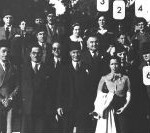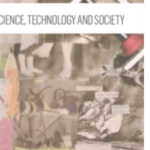March 2022

BEECH, Hannah. One casualty of the palm oil industry: an orangutan mother shot 74 times. The New York Times, 29 June 2019. In Alves, Abel A. The animal question: the Anthropocene’s hidden foundational debate. História, Ciências, Saúde-Manguinhos [online]. 2021, v. 28, suppl 1.
These are some of the themes discussed in the article The animal question: the Anthropocene’s hidden foundational debate, written by Abel Alves, Professor and Chairperson of the Department of History at Ball State University.
“Some will certainly argue that humans must be fed, including with the cheapest meat possible to satisfy vitamin B-12 and iron requirements, but how humane or even rational are we, with global temperatures on the rise and pandemic diseases spreading in response to the way we use the planet and its nonhuman inhabitants?”, asks the article.







